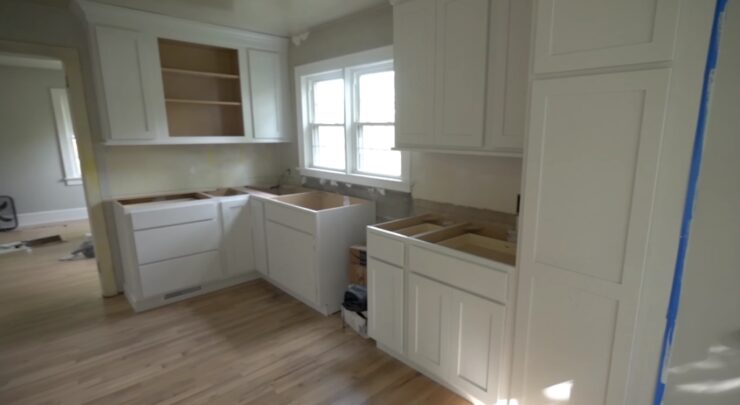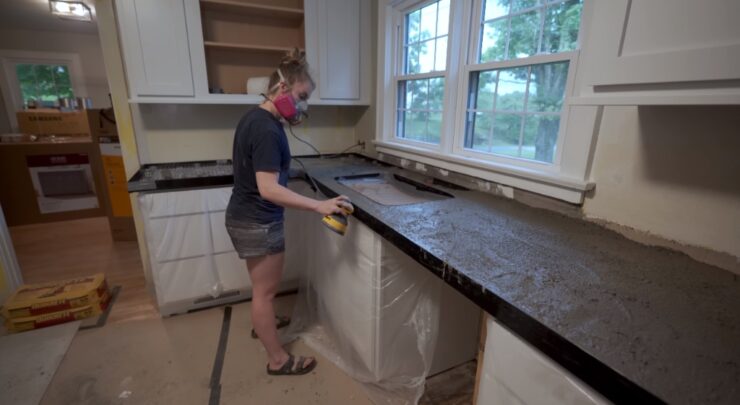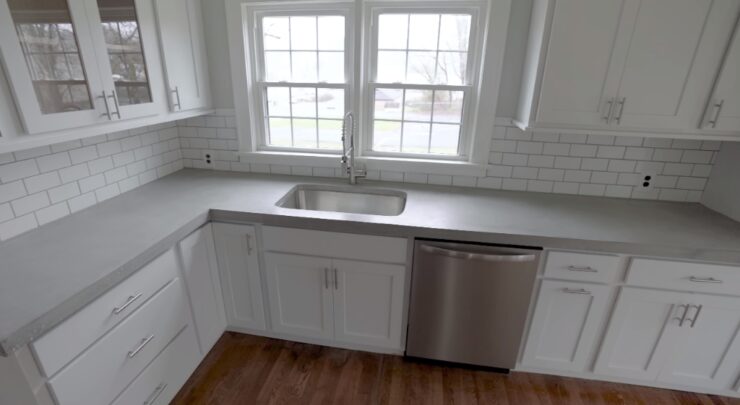Moving into a new home is an exciting journey, filled with opportunities to create a space that reflects your style and meets your needs. One of the most significant areas in any home is the kitchen, a hub of daily activity, gatherings, and culinary creativity.
Renovating your new kitchen before moving in can significantly enhance this central space, making it more functional, aesthetically pleasing, and aligned with your lifestyle.
This approach not only allows for a smoother transition into your new home but also adds value and comfort from day one. In this article, we’ll explore six compelling reasons why it’s advantageous to tackle kitchen renovations before you settle into your new abode.
So, without further ado, let’s get started:
Ease of Renovation Without Personal Belongings
Renovating an empty kitchen is far more straightforward and efficient than trying to navigate around boxes, furniture, and everyday household items.
An unoccupied space provides contractors with unhindered access to the kitchen, allowing for quicker and more efficient work. This setup minimizes the likelihood of delays and ensures that the renovation process is smooth and uninterrupted.
In preparing for a pre-move renovation, consider the logistics of moving your belongings. Hiring a reliable moving company, like Coleman Movers, can be a strategic decision. Professional movers can securely store your belongings or strategically move them into your new home, excluding the kitchen area.
This approach not only facilitates a hassle-free renovation process but also protects your items from potential dust, debris, and accidental damage that can occur during a kitchen remodel.
Customization According to Your Preference

One of the most significant advantages of renovating your kitchen before moving in is the opportunity to tailor the space to your exact preferences and needs. This period allows you to design your dream kitchen without constraints, selecting everything from the layout to the finishes and fixtures that best suit your taste and lifestyle.
Customizing your kitchen beforehand means you can focus on what’s most important to you, whether that’s a spacious island for family gatherings, a state-of-the-art cooking range for culinary exploits, or ample storage space for a clutter-free environment.
By taking the time to personalize your kitchen before you move in, you ensure that once you do start living in your new home, the kitchen is a fully functional, beautiful space that resonates with your style and meets your daily needs.
Increased Home Value
A well-designed, modern kitchen can significantly increase the overall value of your home, and this is particularly beneficial if you view your new purchase as a long-term investment. A renovated kitchen not only enhances the aesthetic appeal of your home but also serves as a key selling point should you decide to put your home on the market in the future.
An updated kitchen with new appliances, quality countertops, and efficient layouts appeals to potential buyers and can greatly increase the marketability of your home.
Even if selling is not in your immediate plans, knowing that your investment in the kitchen renovation contributes to the increased value of your home can provide peace of mind and a sense of financial prudence.
Moreover, tackling a kitchen renovation before moving in means that if and when you do decide to sell, your home will be ready without the need for last-minute updates, making the selling process smoother and potentially more profitable.
Addressing Safety and Compliance Issues

Safety in the kitchen is paramount, and a renovation provides the perfect opportunity to address any existing safety concerns and ensure compliance with current building codes. Older homes, in particular, may have outdated electrical systems, inadequate ventilation, or materials that are no longer considered safe or efficient. Renovating before you move in allows you to upgrade these elements to modern standards.
Electrical systems can be overhauled to handle modern appliances and technology, reducing the risk of electrical fires. Ventilation can be improved to ensure proper air circulation, which is crucial for both comfort and health, especially in a room where cooking gases and odors are prevalent.
Additionally, materials like non-slip flooring can be installed to prevent accidents, and ergonomic design can be employed to reduce strain during cooking and cleaning tasks.
Moreover, updating your kitchen also means ensuring it adheres to current building regulations and standards. It could include proper spacing for cabinetry and appliances, adequate lighting, and the installation of smoke detectors and fire extinguishers.
Addressing these aspects not only ensures a safer kitchen but also a smoother selling process in the future, should you choose to sell your home.
Energy Efficiency and Sustainability
Renovating your kitchen before moving in also provides an excellent opportunity to incorporate energy-efficient and sustainable practices. Modern appliances that bear energy-saving ratings like ENERGY STAR® can lead to significant savings on utility bills. These appliances use less water and energy, thereby reducing your home’s overall environmental footprint.
In addition to appliances, you can consider sustainable materials for countertops, cabinetry, and flooring. Options like bamboo, recycled glass, and sustainably sourced wood not only add a unique aesthetic to your kitchen but also support environmentally friendly practices.
Furthermore, implementing LED lighting offers long-term energy savings and improves the overall lighting quality of your kitchen.
Energy efficiency extends beyond appliances and materials. Proper insulation in the kitchen walls and the use of energy-efficient windows can help maintain a consistent temperature, reducing the workload on your heating and cooling systems.
This holistic approach to energy efficiency in your kitchen renovation not only benefits the environment but also leads to cost savings in the long term.
Avoiding Future Disruptions

Renovating your kitchen before moving in helps avoid future disruptions to your daily life. Kitchen renovations can be quite invasive and may render the space unusable for an extended period.
By completing the renovation before you settle in, you eliminate the inconvenience of living in a construction zone, where daily routines like cooking and dining are disrupted.
Planning for a kitchen renovation in an already inhabited home requires careful scheduling and often makeshift kitchen arrangements, which can be stressful and challenging to manage. In contrast, renovating an empty kitchen allows for a smoother, faster process, free from the complications of working around a household’s daily activities.
Conclusion
Renovating your kitchen before moving into your new home is a decision that offers numerous benefits. It allows for easier renovation processes without the presence of personal belongings, offers the opportunity for customization according to personal preferences, can significantly increase your home’s value, addresses any safety and compliance issues, enables the implementation of energy-efficient and sustainable solutions, and avoids future disruptions in your daily life.
Taking the time to renovate your kitchen beforehand ensures that once you move in, you can immediately enjoy a space that is not only aesthetically pleasing and functional but also safe, efficient, and tailored to your lifestyle.

